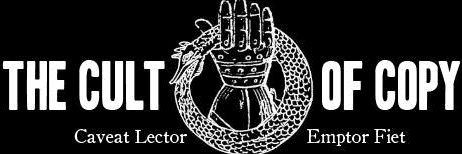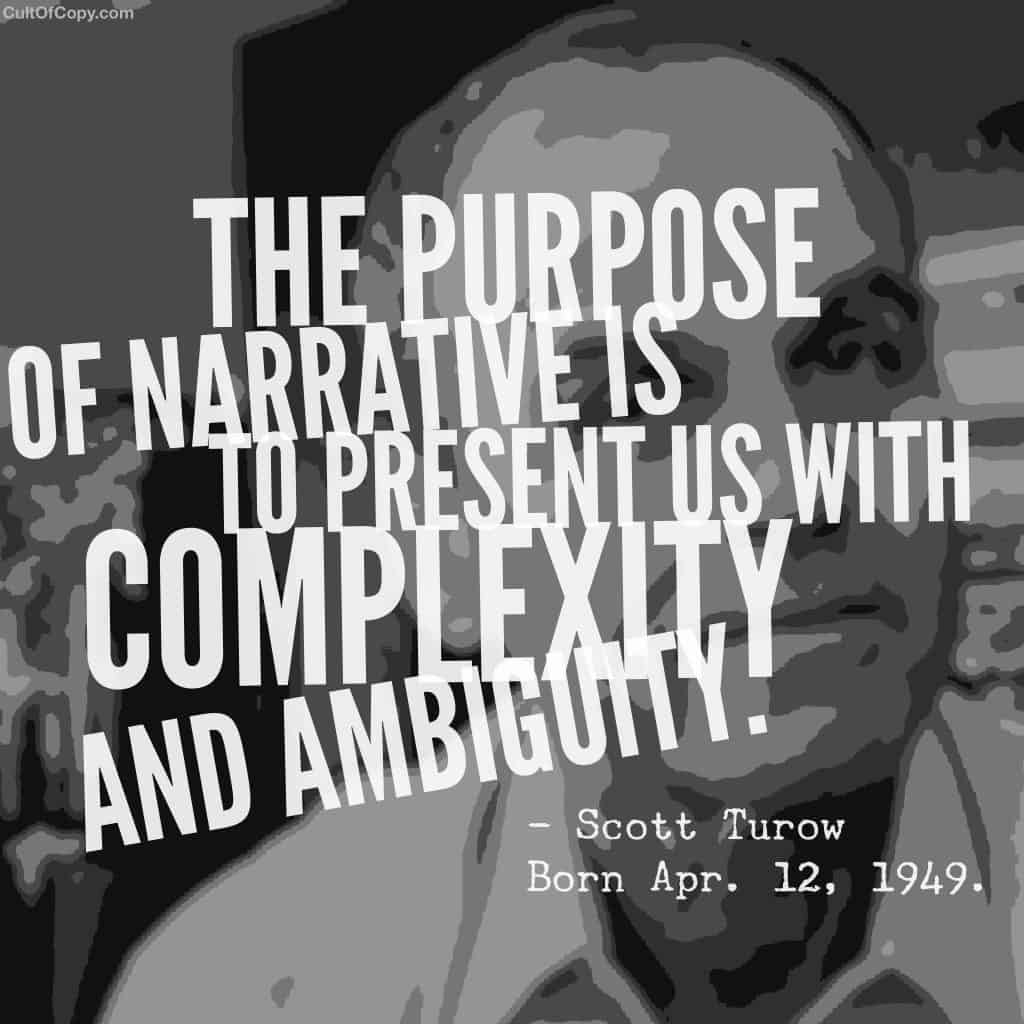“The purpose of narrative is to present us with complexity and ambiguity.” – Scott Turow, Born Apr. 12, 1949.
Scott writes fiction, unlike us. But his point holds, because we DO use complexity and ambiguity.
The purpose of narrative in copy is to give COMPLEXITY to the problem the prospect is facing.
We give it facets, and layers, and edges – make it intersect with their lives in ways that are more complicated and involved that they currently realize.
Like dominoes, their problems can cascade into a chain reaction of issue after issue.
Like the ripples that radiate from a stone dropped in a pond, the problem spreads to have an affect on every part of their life – work, home, family, friends, etc.
Then, the narrative of the copy acknowledges the AMBIGUITY of the possible solutions the prospect has had access to up to now.
Do they know how to solve the problem themselves? Do they know how to address those facets and layers?
Are there many competitors offering solutions, drowning them in options?
Who are those competitors? Are they reputable? Are their products proven or even tested? Who says so?
Both of these twin tensions of complexity and ambiguity create the same kind of urge to continue that a reader of a fiction narrative will have.
And while a novel will hopefully resolve this complexity and ambiguity with a satisfying ending, WE however leave our readers with a cliffhanger.
The only way our readers can get THEIR relief is by purchasing – our solution will resolve the ambiguity and give them a reliable result. It will eliminate the complexity with simplicity of use to get that result.
TL;DR: In copy, the problem and the competing solutions are complex and ambiguous. What you sell fixes it. The solution becomes simple, because the product is specific.
Does that make sense? Or was I too complex and ambiguous?


The last 3 emails have been fire! Keep’em coming.
Thanks!